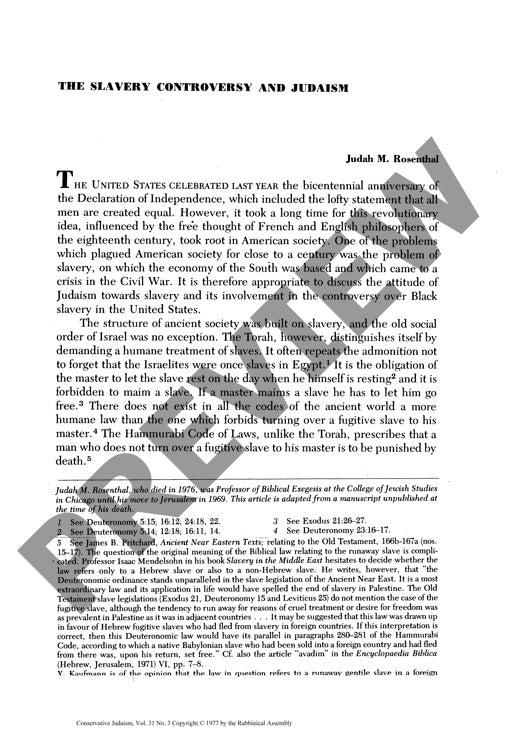The Slavery Controversy and Judaism
Couldn't load pickup availability
When Rabbi Morris Raphall delivered his controversial 1861 sermon defending slavery through biblical interpretation, he ignited a fierce debate that exposed deep tensions between traditional Jewish law and emerging humanitarian values in American society. Biblical, talmudic, and rabbinic sources had long mandated humane treatment of slaves—requiring rest periods, protection from physical harm, and notably, prohibiting the return of fugitives—yet neither ancient Jewish texts nor rabbinic literature fundamentally opposed slavery as an institution. Through comparative textual analysis of Jewish and Christian sources, this research traces how both religious traditions historically accepted slavery within the established social order. The controversy surrounding Raphall's "Bible View of Slavery" sermon and the forceful rebuttal by Jewish journalist Michael Heilprin crystallized how biblical interpretation, particularly regarding the curse of Canaan and the meaning of Hebrew terms like *eved*, became weaponized in pro-slavery and abolitionist arguments. While traditional Jewish authorities remained constrained by talmudic precedent in their general acceptance of slavery, Reform Jews and secular Jewish intellectuals emerged as vocal critics of the institution. Orthodox Judaism's conservative adherence to traditional sources ultimately created an insurmountable tension when confronting slavery's moral challenges in 19th-century America, highlighting the broader conflict between literal scriptural interpretation and society's evolving ethical standards.

More Information
-
Physical Description
-
Publication Information
Published 1977
ISBN
-
Publication Credits
Judah Rosenthal

